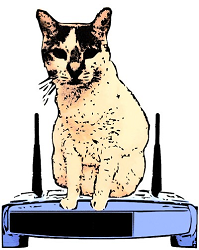14-814/18-637: Wireless Network Security - Spring 2017
Instructor: Patrick Tague
- Email: tague [at] cmu [dot] edu
- Office: B23 218
- Phone: 650-335-2827
- Skype: ptague
- Office Hours: by appointment
- Office: B23 218
Logistics:
- Class Meetings:
- Tuesdays & Thursdays, 10:30-11:50am PST / 1:30-2:50pm EST
- B23 212 in SV, CIC 1201 in Pgh
- Course Description:
- With communication and network services and applications increasingly leveraging wireless media, the importance of information and network security in the wireless domain continues to grow. The challenges of providing secure communication and network services are considerably more difficult in wireless environments than in traditional wired systems (e.g., the Internet), so the focus of the course will be purely wireless environments such as wireless ad hoc, mesh, and sensor networks. Coverage will focus on wireless vulnerabilities and attacks at various layers of the protocol stack, spanning the stack from aspects of physical communication to application and service security issues. Focus will be placed on securing the operation and performance of wireless networks, with less emphasis on information security. Topics include MAC-layer misbehavior; selective packet dropping, modification, and insertion; jamming; distributed trust in ad hoc environments; reputation systems; and cross-layer attacks. Class material will be largely based on recent and current research. In addition to individual homework assignments, students will participate in an intensive group project involving significant research, development, and experimentation.
- Evaluation & Grading:
- Students will be individually evaluated on all course deliverables. Contributions to the final grade will be 30% for individual assignments; 25% for group presentations; 25% for written reports; and 20% for the exam.
- Prerequisites:
- Graduate standing and (18-631 or 18-730 or 14-741) and (14-740 or 18-756 or 15-641). Contact the instructor directly with questions about requirements.
- Reading Material & Textbooks:
- Textbooks will not be explicitly used; course material will be based primarily on research papers. Students are
expected to read the assigned research papers (reading material may show up on assignments and exam), but reading
reviews are not required. For students who are not familiar with relevant background, the following optional
textbooks may help.
- Levente Buttyán and Jean-Pierre Hubaux, Security and Cooperation in Wireless Networks, 2008. [Available Online]
- Charlie Kaufman, Radia Perlman, and Mike Speciner, Network Security: Private Communication in a Public World, 2002.
- James Kempf, Wireless Internet Security: Architectures and Protocols, 2008.
- William Stallings, Wireless Communications & Networks, 2004.
- David Tse and Pramod Viswanath, Fundamentals of Wireless Communication, 2005. [Available Online]
- Tuesdays & Thursdays, 10:30-11:50am PST / 1:30-2:50pm EST
Course Deliverables:
- Students will participate in a significant group project in addition to individual homework assignments and an
exam. All submissions are to be made through Blackboard. Email submissions will not be accepted.
- Project:
- Teams of students will work on a collaborative project for the duration of the semester. Students are responsible for forming their own teams based on common interests and/or complementary skills. Through the semester, teams will give four project presentations and submit two written reports. Details and deadlines are posted here and also available on Blackboard.
- Exam:
- An in-class exam will take place on April 18. Please contact the instructor as soon as possible if special arrangements are needed.
- Assignments:
- Students will individually complete four assignments. We encourage students to discuss the assignments, but all aspects
of the graded submission (e.g., coding, design, writing) must be done individually. Assignment details and deadlines
are below. Students have a choice between (1) using the OMNET++ simulation environment for the wireless networking needs in this
course and (2) creating a wireless network testbed using their own collection of RP3 hardware. The instructions included below
include tasks for both OMNET++ and RP3 versions of each assignment.
- Assignment #1: Assigned January 17, Due January 31
- Assignment #2: Assigned January 31, Due February 14
- Assignment #3: Assigned February 14, Due March 2
- Assignment #4: Assigned March 2, Due March 30
- Project:
Daily Schedule and Reading Material:
- Students should consult the daily schedule for relevant reading materials and a complete list of the topics covered, important dates, and events. Note that this daily schedule is tentative and can change at any time.
Policies, Ethics, etc.:
- Students taking the Wireless Network Security course are expected to follow various academic policies set forth by the departments, colleges, and university, as well as additional policies specific to this course. Please see this course's policy overview page for more details.
